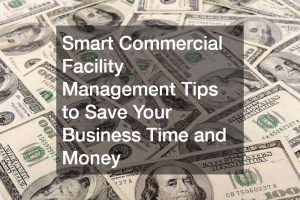- Commercial property investment decisions should consider location, market trends, budget and financing, property inspection, zoning laws, and potential for return on investment (ROI).
- A thorough analysis of local market trends and understanding zoning laws are crucial in selecting a suitable property location.
- Proper budgeting, understanding of financing options, and a thorough inspection of the property can prevent financial overstretch and costly future repairs.
- Evaluating the property’s potential ROI, which incorporates both income potential and appreciation, is essential for a successful investment.
Before embarking on the investment journey to purchase a commercial property for your business, there are several crucial aspects you need to consider. These include determining the location’s accessibility for your clients and staff, understanding zoning laws, assessing the property’s condition and necessary renovations, and getting a clear picture of your financial capability for such a substantial commitment. Conducting a thorough due diligence ensures the property aligns well with your business goals and long-term plans.
Research the Location
The location of your commercial property plays a pivotal role in the success of your business and therefore warrants meticulous research and evaluation. Here are some things to consider:
Understand the Market Trends
Keeping abreast of the prevailing market trends where you plan to purchase commercial property is paramount. This involves assessing the current market rates, understanding the supply and demand dynamics, and predicting future trends. Consider factors such as the growth of industries in the area, planned infrastructure projects, and demographic trends.
Check whether the area is steadily attracting businesses or if businesses are moving out. A higher influx indicates a thriving location that might promise good returns from your investment. However, be wary of over-saturated markets as competition could be fierce. An area with few businesses may also present unique opportunities but with higher risks. Conducting this research will help you evaluate if the location is suitable for your business, both presently and in the future.
Budgeting and Financing

Once you’ve assessed the location and market trends, the next critical step is establishing your budget and understanding your financing options for the commercial property. Start by determining the maximum amount you can invest without negatively impacting your business’s operational expenses.
You’ll also need to consider additional costs such as renovation, maintenance, insurance, and property taxes. After setting a budget, explore various financing options. Commercial real estate loans are a common choice, but they often have stricter eligibility requirements than residential loans.
You might also consider business loans, seller financing, or crowdfunding depending on your circumstances. Remember, while reaching for a prime location property is tempting, overextending financially can put your business at risk. Always prioritize the balance between the property’s potential return on investment and your financial capability.
Property Inspection
A thorough property inspection is imperative before purchasing any commercial property. This involves examining the structural integrity of the building, checking the condition of the roof, plumbing, electrical systems, and HVAC systems, and looking for any signs of pest infestations. You should also check for hazardous materials such as asbestos and lead-based paint.
Hiring a professional commercial inspector can help you uncover any potential issues that might require expensive repairs or maintenance in the future. Remember, any faults identified during the inspection can be a negotiation point to lower the purchase price. This step ensures that the property is safe and compliant with building codes and can save you from unexpected costs.
Understand the Zoning Laws
Understanding the local zoning laws is pivotal before purchasing a commercial property. Zoning ordinances dictate how a property can be used and can significantly impact your business operations. For instance, zoning laws can determine if a property can be used for retail, manufacturing, or office spaces.
Furthermore, these rules can restrict the building’s height, appearance, parking availability, and even the type of signage you can display. Violating these laws can result in penalties or legal action, so consulting with a local planning agency or a real estate attorney is essential to comprehend these regulations fully. Confirming that your intended business use aligns with the property’s zoning classification ensures a smoother operation and helps avoid potential conflicts in the future.
Evaluate the Property’s Potential for Return on Investment (ROI)

Evaluating the potential return on investment (ROI) for the commercial property is critical to your investment journey. Calculate the property’s net operating income by subtracting the annual expenses (maintenance, insurance, property taxes, management fees, and vacancies) from the annual income.
Then, divide this by the property’s purchase price to get the cap rate, which measures the potential ROI. A higher cap rate typically means higher risk but also higher potential returns. Also, consider the appreciation potential, based on market trends and location dynamics.
Remember, a property with high rental income but little scope for appreciation might not yield the desired returns in the long run. Always consider both income potential and appreciation when assessing ROI.
Consult with a Real Estate Lawyer
Before finalizing the purchase of a commercial property, consulting with a lawyer specializing in real estate law is highly recommended. Navigating the complexities of commercial property transactions can be daunting, and an experienced real estate lawyer can provide invaluable advice to shield you from potential legal implications.
They can assist in reviewing the purchase agreement, ensuring it accurately represents the terms discussed, and flagging any potential risks or liabilities. In addition, they can guide you through regulatory requirements, such as zoning laws, building codes, and environmental regulations, ensuring you’re in full compliance. Consulting with a real estate lawyer can save you from costly mistakes, protect your rights, and provide peace of mind in your investment journey.
In conclusion, purchasing commercial property for your business requires careful research, planning, and consultation with professionals. So, take time, do your homework, and don’t hesitate to seek expert advice. Now, it’s your turn to embark on this journey and make an informed decision towards your business success.





